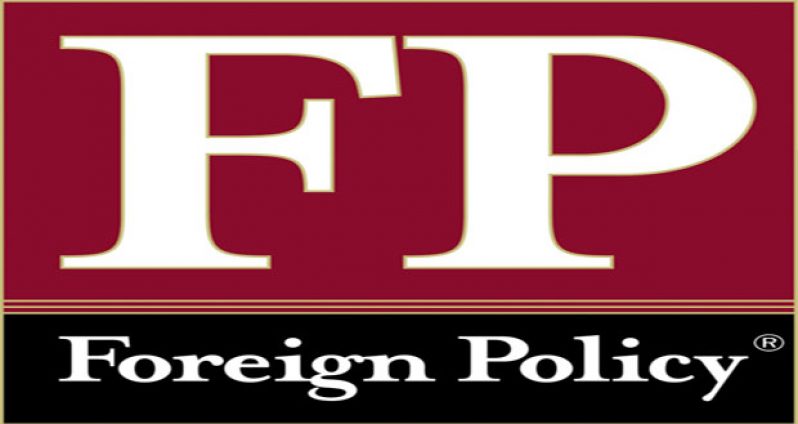EXTERNAL trade among Caribbean Community (Caricom) countries is a top priority and central plank in the region’s foreign policy, new Chair of the Council for Foreign and Community Relations (COFCOR), Guyana Foreign Affairs Minister Carolyn Rodrigues-Birkett said Tuesday.
Speaking at the opening of the Council’s 17th meeting at the Guyana International Conference Centre, Turkeyen, Greater Georgetown, she said:“Several areas of great concern have arisen and require our urgent and focused attention.
“The current arrangements with traditional trading partners have presented us with serious challenges relating to reciprocity, stringent conditionalities of reduced development support and growing non-tariff barriers.”
The COFCOR Chair pointed out that Caricom’s member states continue to make the dedicated effort to implement the Economic Partnership Agreement (EPA) with Europe.
However, she said that countries are finding out that this is a demanding task for small developing economies in the region.
Rodrigues-Birkett said:“Never mind that the Caribbean remained on course as the only ACP sub-region to successfully conclude the negotiation with Europe on schedule in 2007 and the only one to so do to date.
Being graduated
“No sooner was the ink dried than we find ourselves being graduated to more developed country status to lose access to much needed development resources and the market access under the EPA is faced with many hurdles for our fledgling business communities, including tedious visa requirements.”
According to her, these high levels of debt and graduation from concessional financing and development aid is based on an “arbitrary categorisation” of small developing States as upper middle income countries.
She added that this categorisation is done using Gross Domestic Product (GDP) per capita, a system that ignores significant vulnerability indices, which paint the true picture of the economy.
The COFCOR Chair also addressed ongoing negotiations with Canada for a Trade and Development Agreement and said the Region has shown “immense flexibility” and remains committed to achieving a successful conclusion.
“It is true that, for most of our member states and for the region as a whole, the United States is still our largest trading partner, in terms of value and volume of trade. However, we cannot assume that the current arrangements will remain sufficient and resilient,” she said.
Rodrigues-Birkett called for CARICOM Member States to “engage and pursue” initiatives to improve trade, including through the maximum use of the Trade and Investment Framework Agreement (TIFA).
Caricom and the United States signed a Trade and Investment Framework Agreement (TIFA) last May in Port-of-Spain, Trinidad and Tobago.
Practical strategies
It is expected to drive strengthened trade and investment ties between Caricom and the U.S. as it would serve as a mechanism for the two sides to develop practical strategies on a wide range of trade, investment and economic cooperation issues.
This is seen as essential to spurring economic development and diversification of the Region and to contributing to improvement in the well-being of our citizens.
The implementation of the agreement will be executed under the mechanism of the Caricom-U.S. Trade and Investment Council which will be led by a nominee of the Caricom Chair and the Office of the U.S. Trade Representative (U.S.T.R).
The TIFA, which is the result of a revision of an Agreement signed in 1991, takes account of the multilateral trading environment created by the WTO, as well as changes in the regional environment brought on by the implementation of the CARICOM Single Market and Economy (CSME).
An Initial Action Agenda, which was annexed to the Agreement, set out the areas for attention which include matters relating to the WTO; bilateral trade and investment arrangements; cooperation in regional and multilateral areas; support for regional integration; cooperation to promote and respect fundamental labour rights, social protection and workforce development and the facilitation of trade and investment opportunities.
Digital divide
In addition, the Agreement establishes the framework for the discussion of issues to address the digital divide through the promotion of innovation and the dissemination of technology for increasing competitiveness, job creation, economic development and trade, as well as for discussing U.S. trade and investment-related legislation which have extra-territorial impact.
Specific examples of legislation in this regard are the Foreign Account Tax Compliance Act (FATCA) and the New U.S. Food Safety Modernisation Act (FSMA).
There are also other issues of critical importance to Caricom, particularly with respect to export development, which, through engagement with Representatives and Officials of the U. S. Administration and the Congress, mutually acceptable outcomes would be achieved.
Among those of critical and urgent importance to Caricom are the threat faced by its exports of rum in the U.S market and the U.S./Antigua and Barbuda cross-border gambling services dispute.
In addition, the agreement will allow for monitoring of developments in the context of the U. S. President’s 2013 Trade Policy Agenda.
Signing of the revised TIFA also signaled the formal launch of the revitalised Trade and Investment Council (TIC) which would be essential for Caricom and the U.S. to engage in the areas mentioned.
Written By Vanessa Narine



.jpg)










